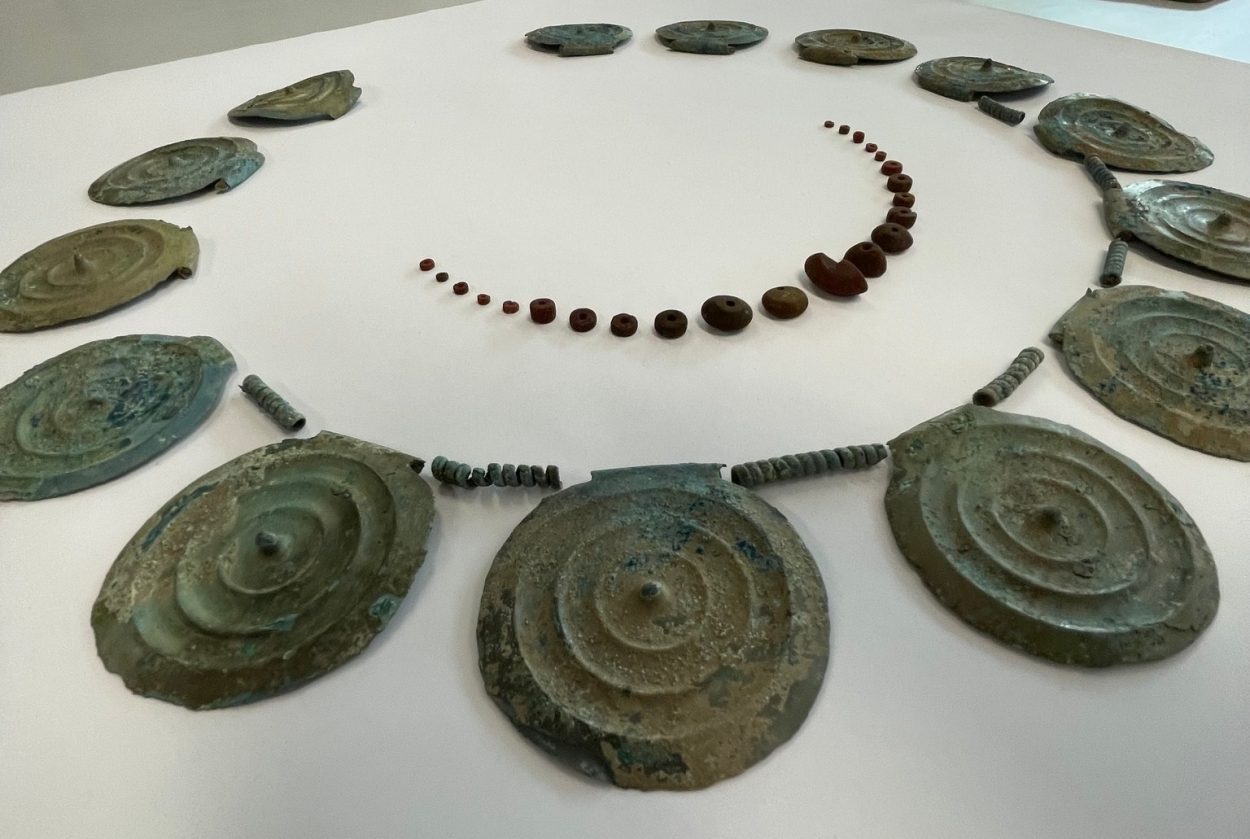A Bronze Age treasure hoard has been uncovered in Güttingen, Switzerland.
The discovery was made by a metal detectorist, who upon realising the significance of the find notified local authorities.
According to a press announcement by the Canton of Thurgau, archaeologists conducted a block recovery at the find site by removing 50x50x50 cm of earth. The block was transported to a laboratory in Frauenfeld, where bronze discs, spiral rings, and over 100 amber beads that date from the Middle Bronze Age around 1500 BC were recovered.
The block contained 14 bronze discs, each decorated with three circular ribs and a round “spike” in the middle. On the inside is a narrow grommet from which a thread or leather strap could be pulled through.

Based on similar examples from this period, the discs are likely part of a high status jewellery piece which had spirals hung between the discs as spacers. 11 such spacer spirals were found in the block, as well as 8 larger spirals made from fine gold wire.
More than 100 amber beads the size of pinheads were removed from the block with tweezers, in addition to 2 finger rings, a bronze arrowhead, a beaver tooth, a perforated bear tooth, a rock crystal, a fossilised shark tooth, a small ammonite, and several lumps of polish ore.
A study of the area where the block recovery took place has yielded no evidence of a burial, suggesting that the treasure hoard was deposited intentionally either for security or during a time of conflict.
There are very few Bronze Age settlements known in the Güttingen area, except for a large Bronze Age pile-dwelling village, however, this site dates from 1000 BC.
The objects, some of which are very sensitive, are currently being restored so that they can be exhibited in the Museum of Archaeology in Frauenfeld in 2024.
Header Image Credit : Canton of Thurgau





